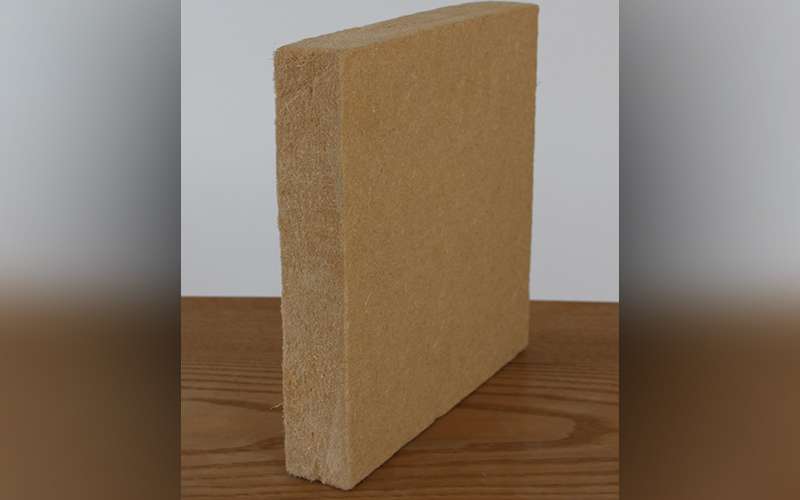
MTI awards $1.5M in challenge grants to two emerging forest tech companies
 Photo / Tim Greenway
Charlotte Mace, the executive director of Portland-based Biobased Maine, worked with Maine Technology Institute in vetting proposals submitted under the Emerging Technology Challenge for Maine's Forest Resources competitive grant program. Two Maine companies will each receive $750,000 in the grants for their winning proposals.
Photo / Tim Greenway
Charlotte Mace, the executive director of Portland-based Biobased Maine, worked with Maine Technology Institute in vetting proposals submitted under the Emerging Technology Challenge for Maine's Forest Resources competitive grant program. Two Maine companies will each receive $750,000 in the grants for their winning proposals.
One company makes insulation out of wood fiber. The other is developing a renewable heating oil substitute. Both companies will receive $750,000 grants from the Maine Technology Institute under the Emerging Technology Challenge for Maine’s Forest Resources competitive grant program launched in December to boost Maine’s rural forest-based economy.
More Information
The two winning proposals were submitted by GO Lab Inc., a Belfast-based building products manufacturer, and Biofine Developments Northeast, which is pursuing commercial development of the first large scale bio-refinery deploying Biofine’s technology in Bucksport.
The challenge grants are an offshoot of MTI’s collaboration of the Forest Opportunities Roadmap (FOR/Maine) Initiative, which is backed with funding from the federal Economic Development Administration and Department of Agriculture and is actively seeking out and supporting emerging technology companies in the forest resource sector. Biobased Maine vetted and evaluated proposals submitted for the competitive challenge grants.
“MTI supports Maine’s robust forest products industry, including efforts to diversify it,” MTI President Brian Whitney said in a news release. “This innovation challenge was an opportunity for MTI to take an active role in helping to identify promising and innovative technologies to help address daunting challenges in one of our key industrial sectors. And, it’s a model that we can replicate to address formidable problems plaguing other sectors in our state.”
GO Lab

GO Lab, an R&D spinoff of the Belfast-based architecture and construction firm GO Logic, is developing wood-based low-density fiberboard insulation. It is sold commercially in Europe, where it competes successfully with polystyrene-based foam insulation derived from fossil fuels, though it is an emerging technology in the United States.
The lab is overseen by chemist and materials engineer Joshua Henry, a former professor and researcher at Bates College and the University of Maine who has worked with GO Logic on several projects, including a super-insulated slab foundation and a panelized Passive House construction system.
MTI envisions that the $750,000 award to GO Lab will enable the company to scale up and that its wood fiber insulation has strong potential to transform the insulation market in the next 10 years.
“Its insulation, made from wood fiber, is renewable, recyclable, nontoxic and performs as well, or better than, other available insulations,” MTI stated in its news release. “GO Lab’s production facility, located at the former UPM paper mill in Madison, will consume 180,000 tons of softwood chips annually, create 100 jobs and generate approximately $70 million in annual revenue.”
The ambitious goal behind the company’s grant proposal? To become the leader in manufacturing wood-dominant, environmentally-preferred building materials, and, in doing so, help fill the void left by the demise of paper manufacturing in Madison. That, in turn, would improve the long-term viability of Maine's rural, forest-based economy.
Biofine Developments Northeast
The second $750,000 award was made to Biofine Developments Northeast, which plans to use it to carry out the commercial development of the first large scale bio-refinery deploying Biofine’s technology in Bucksport.
According to MTI, the plant will enable the conversion of woody biomass into a completely renewable heating oil substitute. Biofine will work with Treadwell Franklin-Sewall as development consultants and the University of Maine at Orono for technical operations.
Both investments were hailed by stakeholders in Maine’s forest products industry.
“With a wave of recent investments and a new vision for growth through 2025, the future of Maine's forest industry is bright,” said Charlotte Mace, executive director of Biobased Maine. “New forest technologies will help to diversify and sustain the industry into its second golden age and revitalize rural Maine communities with the creation of high-paying jobs.”
Patrick Strauch, executive director of the Maine Forest Products Council and co-chair of the FOR/Maine initiative, agreed.
“MTI’s support of Maine's forest industry is crucial to the growth and continued success of the state's innovation and sustainability efforts,” he said. “Maine has an incredible, sustainable forest resource that in the past went primarily to papermaking and lumber. These remain our core products, but the industry will soon look much more diverse; and Maine’s sustainably-harvested forest residuals will be raw material for renewable chemicals, biofuels, advanced materials, and other high-value products.”













0 Comments